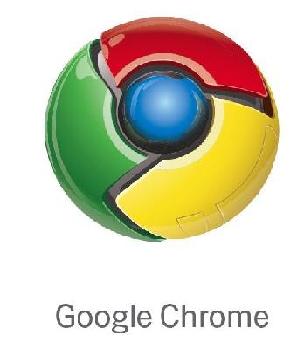By John Sexton
Google yesterday launched a new web browser called Chrome, claiming that it made its move in order to "add value for users and, at the same time, drive innovation on the web", but few doubted that the company was aiming to challenge the dominant position of Microsoft's Internet Explorer on desktops around the world.
 Internet Explorer has over 70 percent of the browser market, Mozilla Firefox has around 20 percent and Apple's Safari is the also ran of the big three with 6 percent. The rest of the competition is nowhere. Google clearly hopes that most users web experience, that at the moment mixes Microsoft's Explorer and Google's search engine, will become a more purely Google affair.
Internet Explorer has over 70 percent of the browser market, Mozilla Firefox has around 20 percent and Apple's Safari is the also ran of the big three with 6 percent. The rest of the competition is nowhere. Google clearly hopes that most users web experience, that at the moment mixes Microsoft's Explorer and Google's search engine, will become a more purely Google affair.
Chrome is so far only available for Windows and is a beta version, which means there still may be significant problems with the software. In a blog post announcing the release, product manager Sundar Pichai and chief engineer Linus Upson explained that they were following the company philosophy of "release early and iterate"; in effect saying the best way to detect the remaining problems was to throw it open to ordinary users. Work is in progress on Mac and Linux versions according to Pichai and Upson although they gave no release dates.
So what's new in Chrome? There is an integrated address and search box which the company claims will simplify surfing. The browser is built around the tab technology made familiar by Firefox, but with additional security and robustness according to Google, since in the Chrome "browser architecture", each tab is independent and a crash on one page will not bring the whole browser down.
The software engineering, the machinery behind the smooth surface of Chrome, has been innovatively presented in a cartoon, which, despite the cool pictures, will find too long and heavy-going, but will no doubt appeal to the tech freaks and geeks. The engineers behind Chrome have helped themselves liberally to open source software made available by the developers of Safari and Firefox, which may turn out to be something of a paradox if the browser wars take off, the more so since just last week Google extended a cooperation agreement with non-profit Mozilla to 2011.
The big questions puzzling industry analysts today are, why Google made this move, and how will it make money out of Chrome. A browser is after all simply a window to view content on the web and is pretty well transparent, that is to say invisible, to users. Some pundits speculated it was part of a broader effort by Google to reduce its dependence on advertising revenue generated by its search engine, but where the new revenue streams will come from exactly so far remains obscure. Another motive may be purely defensive, a response to a planned Internet Explorer release that will make it easier for users to block advertisements routed by, for example, Google.
Meanwhile, Microsoft is unlikely to take things lying down. One of the first things many users will do is to try to load up their Hotmail account using Chrome. When we tried Hotmail, it displayed the following message: "We recommend that you upgrade your web browser so you can get the most out of Windows Live Hotmail. Upgrading should only take a few minutes. To get started, choose one of the browsers below: Microsoft Internet Explorer, Mozilla Firefox, or Apple Safari."
(China.org.cn September 3, 2008)